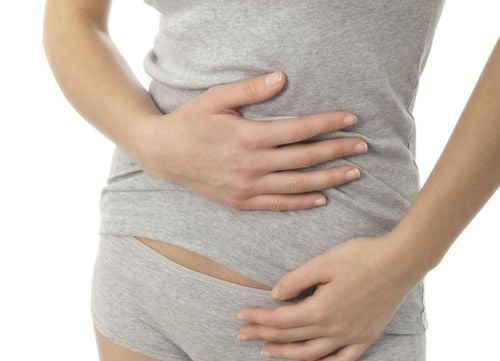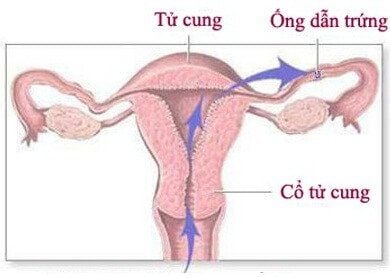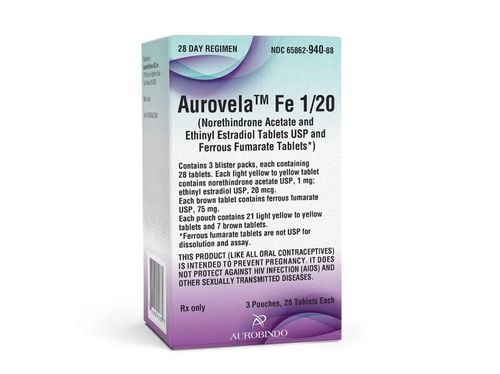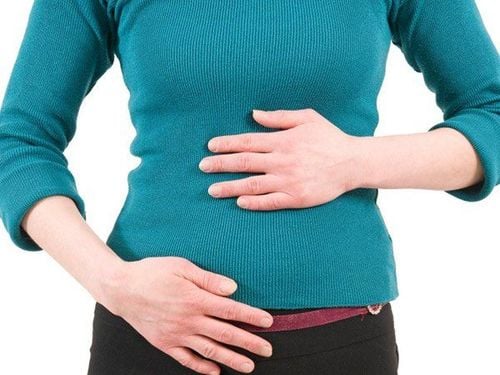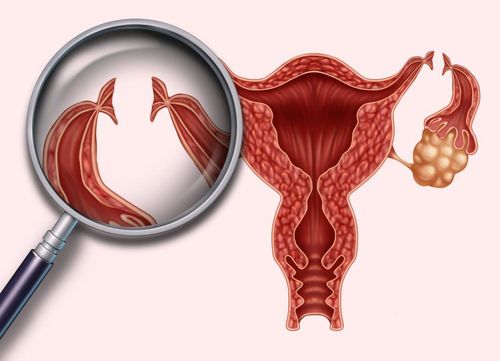This is an automatically translated article.
The article is professionally consulted by MSc, BS. Nguyen Thi Tam Ly, Reproductive Support Center, Vinmec Times City International General Hospital.Understanding the hormonal changes that affect your body around the time of ovulation (ovulation) and what factors can influence when you ovulate will help you improve your health and well-being. fertility.
1. What is ovulation?
Ovulation, also known as ovulation, is the release of an egg from your ovary into your fallopian tube. It usually occurs about 13–15 days before the start of each period (usually mid-period), and the timing of ovulation can vary from cycle to cycle.Each woman will ovulate about 400 times in her lifetime. This number is influenced by contraceptive use (many methods prevent ovulation), length of pregnancy and breastfeeding, and any behaviors or health conditions that affect hormones. reproductive (eg, eating disorders, PCOS).
There are many factors that affect the development of eggs. The development and release of an egg each cycle occurs in response to complex changes in reproductive hormones. Ovulation (and the entire menstrual cycle) is influenced by energetic, nutritional, emotional, and socioeconomic factors, and even by thyroid conditions.
2. How does ovulation take place?
Each month, in a woman's menstrual cycle, there will be a cohort of developing follicles, however, of which only 1 developing follicle with the best quality, the healthiest must outgrow and ovulate. The remaining follicles will degenerate.When the follicle is ready it will release its egg. The egg leaves the ovary and is picked up by the fallopian tube. Once released, the egg has about 12-24 hours to be fertilized by sperm in the fallopian tube. If the egg is not fertilized within this short period of time, it will begin to degenerate. If fertilized, it travels to the uterus within 6-12 days, where it can implant and develop into an embryo.

3. Effects of hormones on ovulation
There are a few hormone effects on ovulation that you may not be aware of.3.1. Before ovulation The nest located in the brain produces continuous bursts of follicle-stimulating hormone (FSH and LH) throughout your cycle. FSH and LH stimulate the follicles to develop. In the follicular cohort there will be a dominant follicle, which will produce estrogen and normally grow to about 2 cm in diameter before ovulation under the influence of the LH peak.
3.2. Ready to Ovulate When estrogen levels reach the threshold, the egg is ready to release the pituitary gland to produce a peak of luteinizing hormone (LH), triggering ovulation. The release of an egg from the follicle and the ovary occurs about 36 hours from when LH begins to rise. The follicle will form an opening, allowing the release of the ovum from the ovary.
At the end of the fallopian tube there is a finger-like structure that helps to pick up and insert an egg. Meanwhile, the egg is undergoing its own changes in preparation for fertilization.
3.3. After ovulation, the ovum forms the corpus luteum, which produces estrogen and progesterone, the important hormones of pregnancy.
If the egg is not fertilized and implanted by the sperm, the corpus luteum begins to degrade and hormone levels drop, causing menstruation. If pregnancy occurs, the corpus luteum provides enough progesterone for the pregnancy to develop until the placenta can take over (at around 10-12 weeks gestation).

4. Ovulation doesn't always happen regularly
Any factor that affects hormone activity in the brain can affect your ovulation. Environmental and internal factors such as stress, dietary changes, and exercise can cause ovulation to happen a little early, a little later, or not at all. Your period may also come earlier or later, lighter or heavier.5. Why is ovulation important?
Ovulation is an important event in the menstrual cycle that determines fertility. In addition, Ovulation disorders in reproductive age are associated with osteoporosis, cardiovascular disease and some cancers later in life.See also: Infertility due to abnormal ovulation
6. How do I know if I'm ovulating?
To find out if you are ovulating you can try:Track the length and regularity of your menstrual cycle. Use a store-bought ovulation test strip Track your physical signs over several cycles, including basal body temperature and cervical mucus. See also: 3 ways to help you check ovulation
You can ask your doctor to check your hormonal profile by testing a blood sample taken during the luteal phase.
Once you understand what ovulation is, you can know how to calculate ovulation to help increase your chances of conception.
If in case you have problems with fertility such as: ovulatory disorders, irregular menstrual cycles, difficulty conceiving... you can go to the Obstetrics and Gynecology Department - Vinmec International General Hospital to The doctor conducts a vaginal ultrasound examination of the uterus and ovaries, Treponema pallidum test, Chlamydia test quickly to find out the cause and have timely treatment.
In particular, Vinmec Hospital has a Reproductive Support Center that is built and applies a treatment process that coordinates comprehensive examination, combining both male and female obstetrics and gynecology to offer the optimal plan for each school. Customer case:
The medical team is highly qualified, experienced, capable of synchronously and comprehensively deploying the most advanced assisted reproductive techniques today. The center has modern facilities Applying medical advances in infertility diagnosis and treatment with a success rate of more than 50%, especially in difficult cases, especially long-term infertility cases. years, failed IVF multiple times.
Please dial HOTLINE for more information or register for an appointment HERE. Download MyVinmec app to make appointments faster and to manage your bookings easily.
Reference source: verywellfamily.com - medicinenet.com - eggfreezing.com




